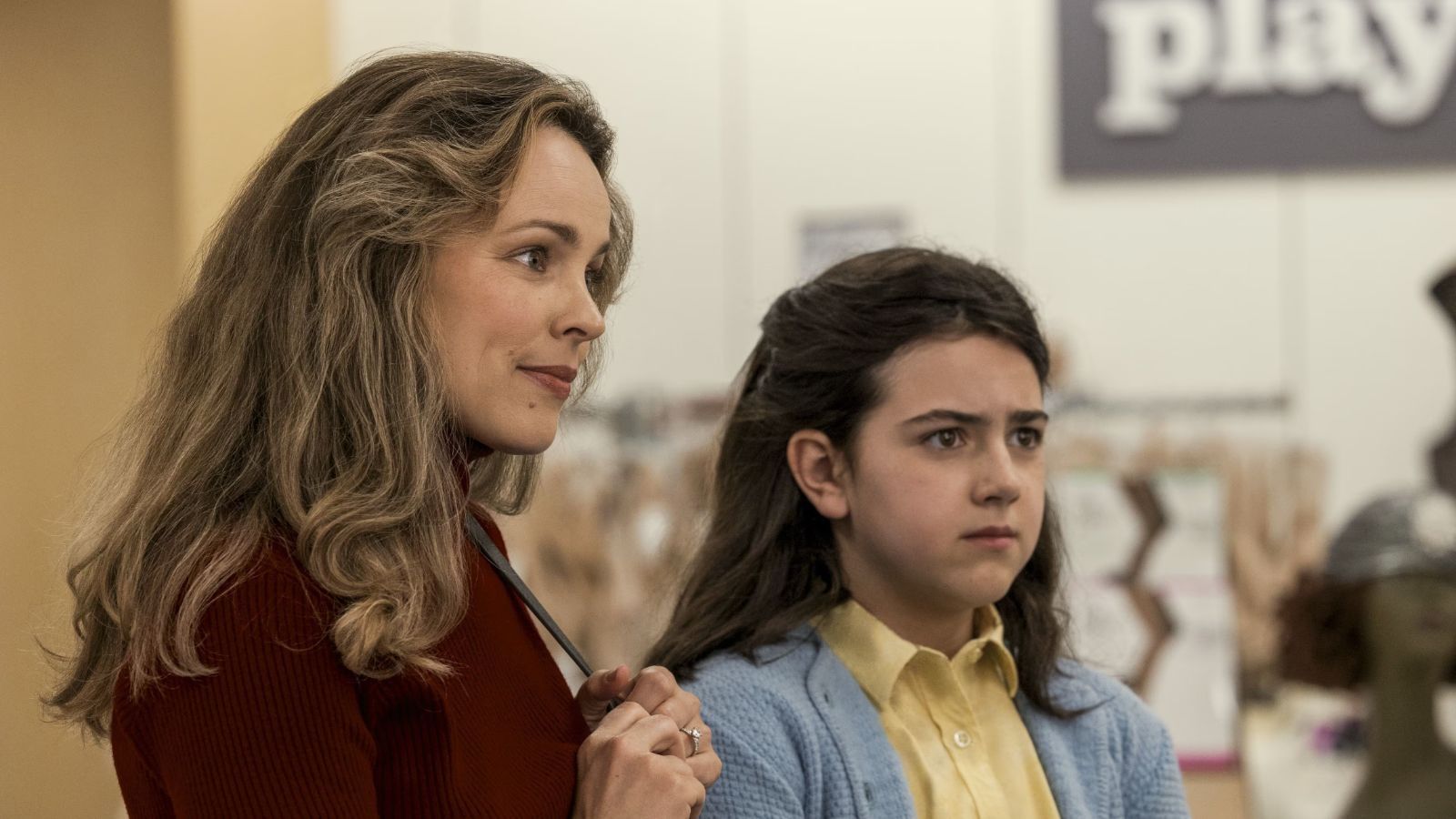Like Judy Blume’s treasured young adult classic, Kelly Fremon Craig’s Are You There God? It’s Me, Margaret begins in 1970 with 11-year-old Margaret Simon (Abby Ryder Fortson) getting the worst news any New York City-raised child can get: her family is moving to New Jersey. It’s not only that Margaret will have to leave behind her wise-cracking grandmother Sylvia (Kathy Bates) or her friends or school, but that being 11 years old often means everything is the end of the world. The crushing despair that makes adolescence feel like a rueful eternity is Fremon Craig’s specialty.
For Blume devotees, this adaptation of the author’s hit novel is––take a breath––very faithful. Devoid of modern-day winkings, needling jokes, or overlong proselytizing, It’s Me, Margaret (for short) is mercifully for its target audience. That the script, also by Fremon Craig, better services Margaret’s parents Barbara (the movie star Rachel McAdams) and Herb (Uncut Gems co-director Benny Safdie), is merely a perk, not the focus. The focus is Margaret, who needs a lot of work––according to Margaret and also everyone else––to discover who and what type of person she ought to be.
Margaret is flanked by a group of female friends, the bossy Nancy (Elle Graham), the geeky Gretchen (Katherine Kupferer), and the spritely Janie (Amari Price). Together they discuss all that is withheld from them: sex, menstruation, bras. Like female friendships of past, present, and future, Margaret’s little clique is not defined by their support and camaraderie with and for each other, but their desire to gossip and shame and critique. Nancy is both Margaret’s greatest ally and worst nightmare, a girl who is quick to point out every flaw or scratch. As Nancy, Graham is a strong foil to Fortson––funnier, sharper, and more vulnerable. They make a strong double-act, and Fremon Craig deftly balances this less-than-ideal but more realistic vision of friendship: often you hitch a horse to the meanest person in the room, leaving more generous souls behind in the dust.
At times, It’s Me, Margaret the film, just like It’s Me, Margaret the book, feels a little too raw and embarrassing: like going to buy a bra at a department store with your mother, there is something unspeakably intimate and horrifying about existing in its world for too long. Fremon Craig avoids sitting in abject discomfort at great length, bringing her film back to the adults every time preteenhood gets to be too much. McAdams is often It’s Me, Margaret’s saving grace, a tried-and-true performer shifting elegantly into more mature roles. As Margaret’s mother Barbara, she is desperately bored and eager to please––not for the benefit of others, or even her husband, but herself. That Herb’s promotion and their move out to the suburbs means she can stop working is meant to be a gift. But womanhood––adulthood, even––is not smooth sailing once adolescence comes to a close. That Barbara grows alongside her daughter makes their relationship ring all the more meaningful.
And like Blume’s book, Fremon Craig’s film is not always smooth sailing. At times the jokes hit harder than they ought to––an attempt, perhaps, to broaden the reach of an otherwise specific work. Bates and Safdie, too, feel a bit outdone by this material. Though Bates is a consummate supporting player, her turn as Sylvia is big and brash with the chutzpah to balance it out, though she and Fortman share some gentle rapport. Safdie, on the other hand, is limited by his own range––a bit too smiley and knowing for a dad who’s often not so in on the joke. With such a strong center in Fortman and McAdams’s chemistry, however, such nitpicks fade smoothly into the background.
Sharpest of all in Fremon Craig’s script is Margaret’s reckoning with God, a bodiless figure to whom she regularly confides her secrets. Her parents––Jewish father, Christian mother––have raised her without religious loyalty in an attempt to spare her the trauma of their own upbringings. Margaret, however, longs for some form of higher power through which she can find guidance that isn’t as humiliating as asking a parent or teacher. Throughout she dabbles in different religions––the stoicism of Shabbat services, the musicality of Baptism, the guilt of Catholicism. It’s no wonder each Western religion feels a bit wrong; her relationship with God is neither so simple nor bureaucratic. Regardless of faith, the world is a warm, but trying place rendered in sunny yellows and earthy browns by Tim Ives’s cinematography. In an increasingly agnostic time it feels truest to Margaret and Blume’s stories that Fremon Craig grants her vision of this girl the same heavenly curiosity with the rest of her life ahead of her to figure it all out.
Are You There God? It’s Me, Margaret opens on Friday, April 28.

